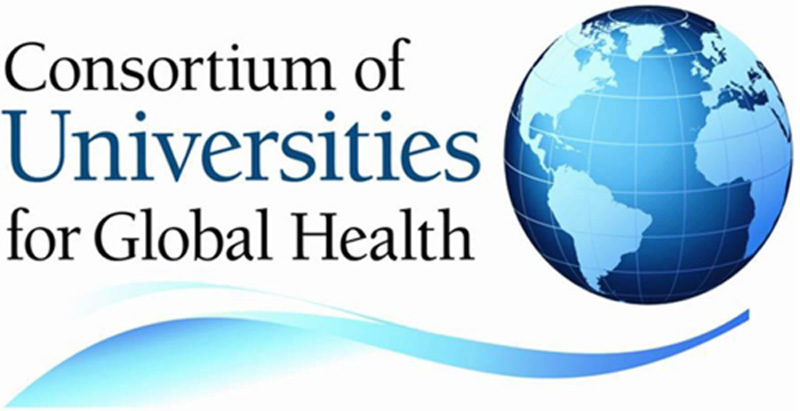February 11, 2021
Armed conflicts have a profound impact on civilian populations who bear the brunt of the devastation they cause. In these environments, many lifesaving women and child health (WCH) services are not reported to be delivered. International donors are the primary actors and drivers of these services determining what, where, when and how they are distributed. Join us for this webinar with some of the Commissioners of the Lancet Commission on Women and Children’s Health in Conflict Settings. Ten areas impacted by war were examined. The impact of conflict on WCH and novel, concrete solutions that can be deployed to provide these services closer to populations in these unstable, dangerous environments will be shared with the audience. A Questions and Answers session will follow the presentations.
SPEAKERS
Dr. Zulfiqar A. Bhutta is the Inaugural Robert Harding Chair in Global Child Health at the Hospital for Sick Children, Co-Director and Director of Research at the SickKids Centre for Global Child Health, and Founding Director of both the Centre of Excellence in Women and Child Health, and Institute of Global Health and Development at Aga Khan University. Dr. Bhutta is a Distinguished National Professor of the Government of Pakistan, co-Chair of the Maternal and Child Health oversight committee of World Health Organization Eastern Mediterranean Region, and the Coalition of
Centres in Global Child Health Chairman. He is a leading voice for health professionals supporting integrated maternal, newborn and child health globally. Dr. Bhutta leads large research groups in Toronto, Karachi and Nairobi with special interests in scaling up evidence-based, community setting interventions and implementation of RMNCAH&N
interventions in humanitarian contexts. Dr. Bhutta obtained his MBBS from the University of Peshawar and his PhD from the Karolinska
Institute. He is a Fellow of the Royal College of Physicians, the Royal College of Paediatrics and Child Health, the American Academy of Pediatrics, and the Pakistan Academy of Sciences. In 2020 he was awarded the honor of Fellow of the Royal Society.
Dr. Paul Wise is dedicated to bridging the fields of child health equity, public policy, and international security studies. He is the Richard E. Behrman Professor of Child Health and Society and Professor of Pediatrics and Health Policy at Stanford University. He is also co-Director, Stanford Center for Prematurity Research and a Senior Fellow in the Center on Democracy, Development, and the Rule of Law, and the Center for
International Security and Cooperation, Freeman-Spogli Institute for International Studies, Stanford University. Dr. Wise is a fellow of the American Academy of Arts and Sciences and has been working as Special Expert to the U.S. Federal Court overseeing the treatment of migrant children in U.S. border detention facilities. Dr. Wise’s most recent work has addressed social disparities in birth outcomes and women’s and children’s health in violent and politically complex environments around the world.
Dr. Neha Singh is the co-Director of the Health in Humanitarian Crises Centre and Assistant Professor at the London School of Hygiene and Tropical Medicine, UK. She has a background in public health and expertise in health policy and systems research using mixed methods to improve the prioritisation, design and delivery of women’s, children’s and adolescent health in conflict-affected settings. She collaborates with a range of NGOs, governments and UN and other multilateral agencies, including in her role as technical advisor to the World Health Organization on women’s, children’s and adolescent health in humanitarian settings.
Hala Ghattas is Associate Research Professor & Director of the Center for Research on Population and Health at the American University of Beirut’s Faculty of Health Sciences. Her research has focused on the social and structural determinants of maternal and child health and nutrition in low-resource settings and marginalized populations. This includes mixed- methods studies of food insecurity experience, barriers to appropriate infant feeding, and barriers to antenatal care access, as well as survey research on food security, nutrition and health status of refugees. Her work responds to the challenges identified by designing, implementing and evaluating public health interventions to address these, particularly in protracted humanitarian settings. Ghattas holds a Master’s in Public Health Nutrition from the London School of Hygiene and Tropical Medicine, and a PhD from St George’s, University of London.
MODERATOR
Michele Barry, MD, FACP, FASTMH is the Drs. Ben and A. Jess Shenson Professor of Medicine and Tropical Diseases at Stanford University. She is the Director of the Center for Innovation in Global Health and Senior Dean for Global Health. As one of the co-founders of the Stanford/Yale Global Health Scholars Program she has sent over 1500 physicians overseas to underserved areas to help strengthen health infrastructure in low resource settings. As a past President of the ASTMH, she led an educational initiative in tropical medicine and travelers health which culminated in diploma courses in tropical medicine both in the U.S. and overseas. Dr. Barry is an elected member of the National Academy of Medicine, the Council for Foreign Relations and the American Academy of Arts and Sciences. She has been selected for Best Doctors in America and is also the 2018 recipient of AMWA’s highest award – the Elizabeth Blackwell medal for creating pathways for women in medicine. She is also the founder of WomenLift Health, a Gates funded leadership initiative for women in global health and is the current chair of the Consortium of Universities for Global Health.
